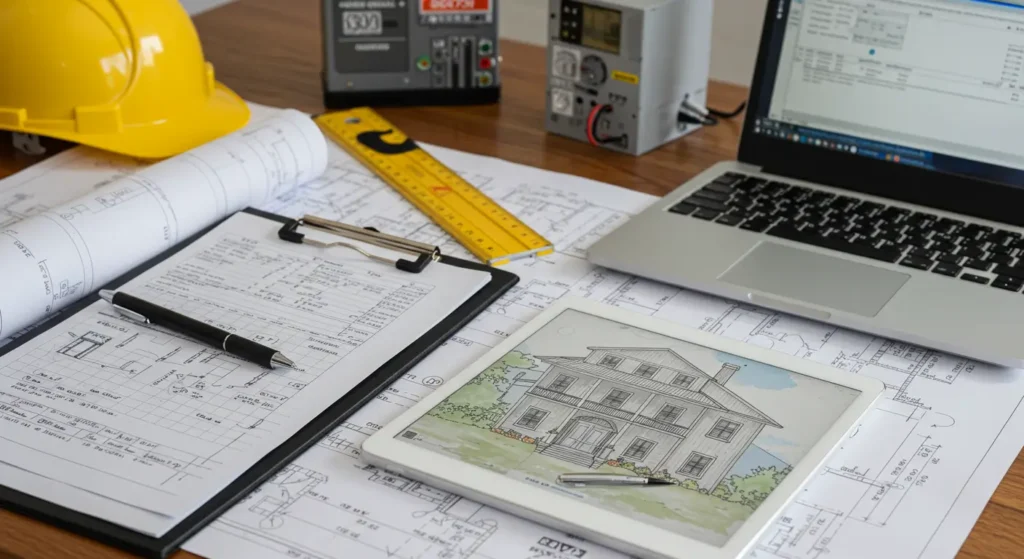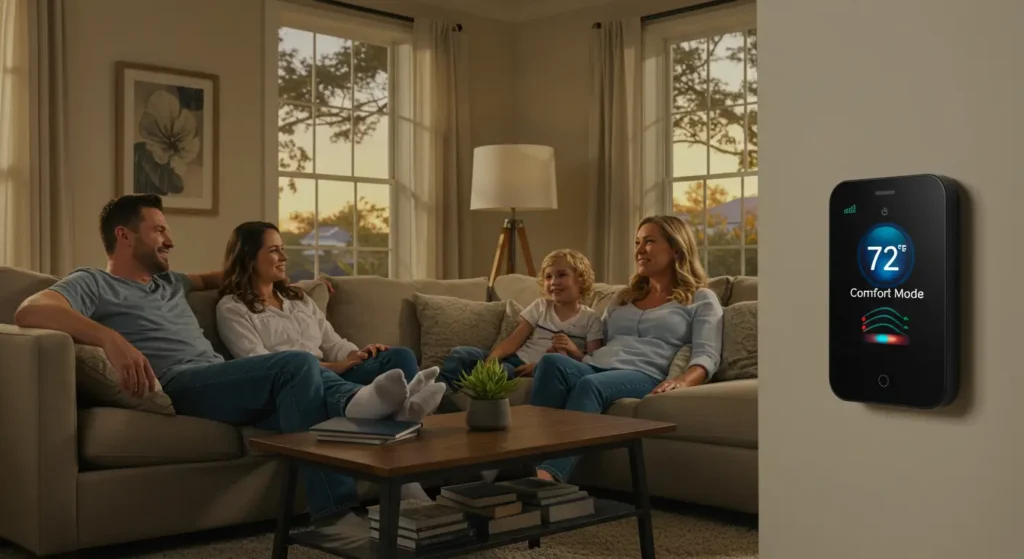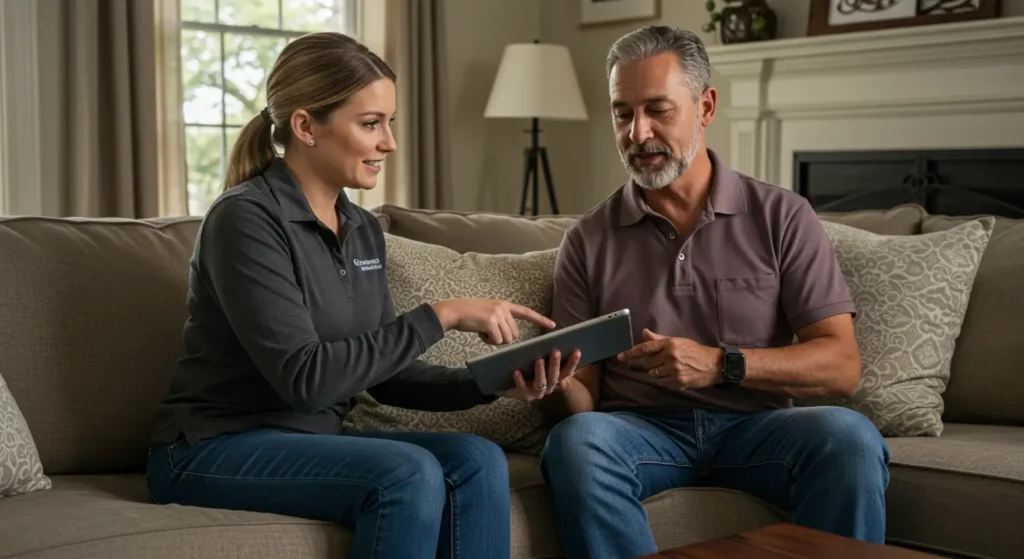Understanding HVAC costs in New Orleans helps you budget for repairs, installations, and maintenance while avoiding surprise charges. Our complete pricing guide breaks down what you’ll actually pay in 2025.
Nobody likes talking about money, but when your AC stops working in the middle of a New Orleans summer, the first thing you want to know is “How much is this going to cost me?” We get it. Between inflation, supply chain issues, and the new refrigerant regulations hitting in 2025, HVAC costs feel like they’re constantly climbing.
Here’s the deal: we’ve been doing HVAC work in New Orleans for over a decade, and we believe you deserve to know what things actually cost before you pick up the phone. No games, no “we’ll tell you when we get there,” just honest pricing information so you can make informed decisions about your home comfort.
Whether you’re dealing with an emergency repair, planning a system replacement, or just trying to budget for regular maintenance, this guide breaks down real HVAC costs in the New Orleans market for 2025. We’ll explain what drives pricing, why our climate makes things more expensive, and how to avoid getting overcharged when you need help the most.
Understanding HVAC Repair Costs in New Orleans
Let’s start with what most people need to know first – repair costs. When your system breaks down, you’re not shopping around for the best deal; you need it fixed, and you need to know what’s reasonable to pay.
Common AC repairs and their typical costs in New Orleans:
→ Capacitor replacement: $150-350 → Contactor replacement: $150-250
→ Fan motor replacement: $300-600 → Refrigerant recharge (R-410A): $400-600
→ Thermostat replacement: $200-500 → Drain line cleaning: $100-250
→ Circuit board replacement: $500-1,200 → Compressor replacement: $1,500-2,500
→ Evaporator coil replacement: $1,000-2,000
These prices include parts and labor for standard residential systems. Commercial systems, emergency service, or work on hard-to-access units will cost more. If someone quotes you way below these ranges, be suspicious – they’re either cutting corners or planning to hit you with add-ons later.
The thing about AC repair in New Orleans is that our systems work harder than almost anywhere else in the country. We’re not just cooling; we’re dehumidifying constantly, which puts extra stress on components. That capacitor that might last 7-10 years in Denver? You’re lucky to get 5 years out of it here.
Factors that affect your repair costs:
System age plays a huge role. Older systems need more expensive repairs more often, and finding parts for units over 15 years old can add 20-30% to costs. The location of your unit matters too – attic installations or tight crawl spaces mean more labor time. And yes, the time of year matters. During peak summer months, you might pay 10-15% more simply because demand is through the roof.
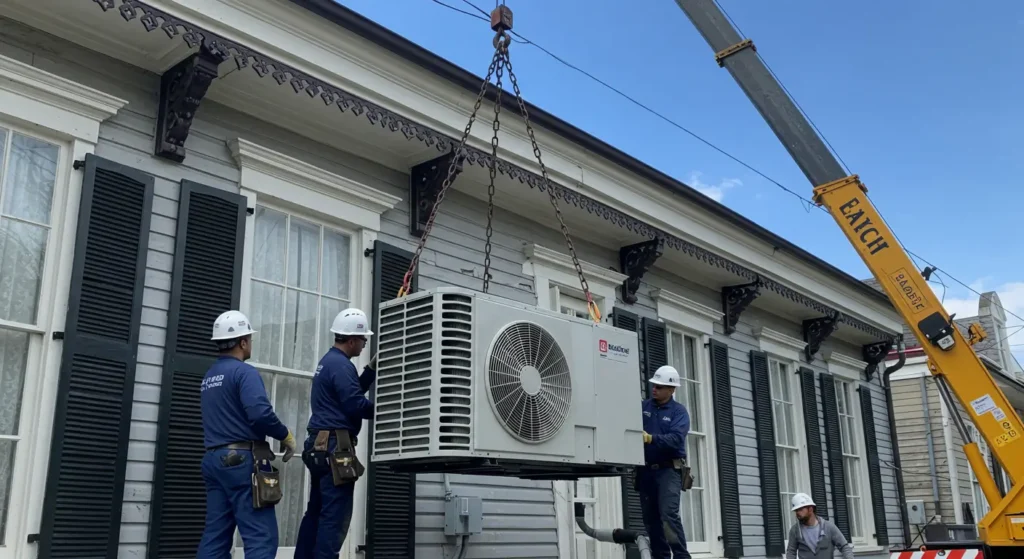
New HVAC Installation Pricing for 2025
If you’re looking at HVAC installation, 2025 brings some significant changes you need to know about. The EPA’s refrigerant phasedown means manufacturers are transitioning to new systems, and that affects both availability and pricing.
Current installation costs by system type:
- Standard efficiency systems (14-16 SEER): $5,000-8,000
- High-efficiency systems (17-20 SEER): $7,000-10,000
- Ultra-high efficiency (21+ SEER2): $10,000-15,000
- Ductless mini-split systems: $3,000-5,000 per zone
These prices assume standard installation with existing ductwork in good condition. Now, let’s talk about what makes installations more expensive in New Orleans. First, humidity control. You can’t just throw in any system and expect it to handle our moisture levels. Proper sizing for dehumidification often means going up a half-ton in capacity, which adds cost.
Historic homes present unique challenges. Those beautiful shotgun houses and Creole cottages? They weren’t built for central air. Installing ductless systems might be your best bet, but even that requires careful planning to preserve architectural integrity. Expect to pay 20-30% more for installations in homes built before 1960.
What’s included in professional installation:
- Load calculation to properly size your system
- Removal and disposal of old equipment
- New refrigerant lines and electrical connections
- Condensate drain installation or repair
- Thermostat installation and programming
- Startup, testing, and commissioning
- Manufacturer warranty registration
- Local permit and inspection coordination
Be wary of quotes that seem too good to be true. A $3,000 installation quote might not include removing your old system, getting permits, or even the thermostat. Always ask for itemized quotes that clearly show what’s included.
Maintenance Service Pricing and Value
Here’s something that might surprise you: regular maintenance is the best investment you can make in your HVAC system. But what should it cost, and what should you get for your money?
Typical maintenance pricing in New Orleans:
Single tune-up visit: $150-300 Annual service agreement: $200-400 Semi-annual agreement (2 visits): $300-500 Comprehensive plans with repairs: $500-800
Now, why the range? It depends on what’s actually included. A $99 “tune-up special” might just be someone looking at your system and changing the filter. A proper maintenance visit should include cleaning coils, checking refrigerant levels, testing all electrical components, inspecting ductwork, and calibrating your thermostat.
In New Orleans, bi-annual maintenance isn’t just recommended – it’s essential. Our systems run 9+ months a year, accumulating dirt, dealing with humidity, and working through temperature swings. Skipping maintenance to save $200 could cost you thousands in premature repairs or replacement.
What quality maintenance prevents:
→ Refrigerant leaks that cost $400-600 to fix → Frozen coils requiring $300-500 in repairs → Electrical failures costing $200-1,200 → Efficiency losses adding 20-30% to energy bills → Complete system failure during peak season
When you schedule maintenance, make sure you’re getting real value. Ask what’s included, whether they’ll provide a written report, and if they offer any warranty on their work. A good maintenance visit should take 60-90 minutes, not 15.
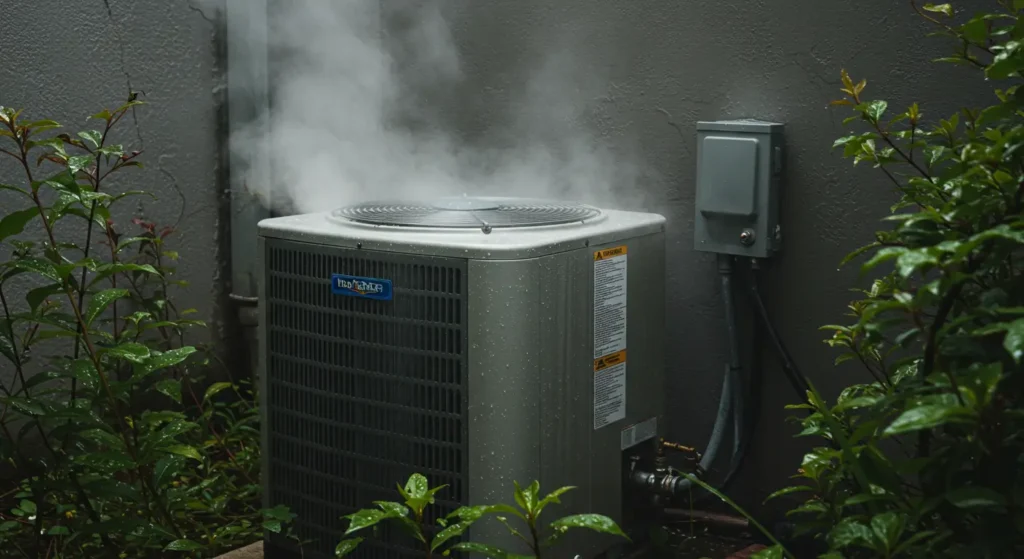
Why New Orleans HVAC Costs More
Let’s address the elephant in the room: HVAC services cost more in New Orleans than in many other cities. It’s not price gouging – it’s the reality of our unique climate and market conditions.
Our extreme humidity changes everything. Your system isn’t just cooling; it’s removing gallons of water from the air daily. This requires more robust equipment, specialized installation techniques, and more frequent service. Systems designed for dry climates simply don’t work here.
The extended cooling season means your equipment gets no rest. While someone in Chicago runs their AC maybe 4 months a year, yours is working from March through November. That’s more than double the wear and tear, leading to more repairs and shorter equipment life.
Hurricane considerations add another layer of cost. Your installation needs to meet wind resistance codes, equipment has to be elevated in flood-prone areas, and surge protection is essential. These aren’t optional extras – they’re necessities that protect your investment.
Labor market realities in 2025:
- Skilled HVAC technicians are in short supply
- Post-Hurricane Ida recovery still affecting workforce
- New EPA certifications required for refrigerant handling
- Insurance and licensing costs increased 15-20% since 2020
The 2025 Refrigerant Changes Impact
January 1, 2025, marks a major shift in the HVAC industry with new refrigerant regulations. If you haven’t heard about this yet, it’s going to affect your wallet whether you’re repairing or replacing your system.
R-410A, the current standard refrigerant, is being phased down. Production has already been cut by 40%, and prices have increased 300% since 2020. That refrigerant recharge that cost $200 in 2020? It’s now $400-600, and prices will continue climbing.
New systems are transitioning to R-32 and R-454B refrigerants. While these are more environmentally friendly and efficient, the equipment costs more upfront. Expect to pay 10-15% more for new R-32 systems compared to current R-410A models.
What this means for your decisions:
If your current system needs major refrigerant work, replacement might be more cost-effective than repair. A significant refrigerant leak in an older system could cost $1,000+ to fix, making that $6,000 replacement look more reasonable.
For newer systems (less than 10 years old), staying with R-410A makes sense for now. Stock up on maintenance to prevent leaks, and plan for replacement in 5-7 years when new refrigerant systems are more established and prices stabilize.
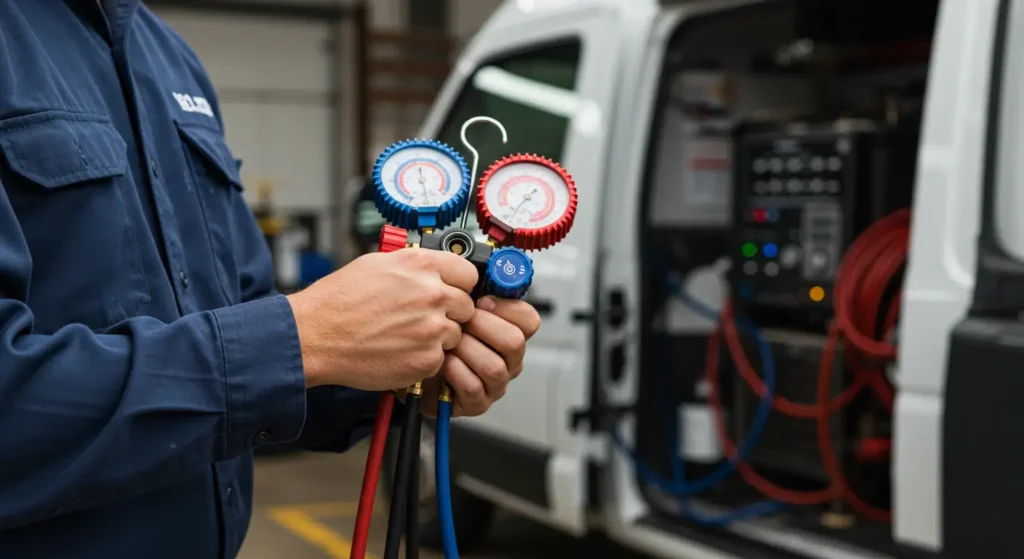
Smart Ways to Manage HVAC Costs
Nobody wants to overpay for HVAC services, but cutting corners usually costs more in the long run. Here’s how to be smart about managing your costs without sacrificing quality or comfort.
Get multiple quotes, but compare apples to apples. A $5,000 installation quote and an $8,000 quote might not be for the same thing. Look at equipment brands, warranty terms, included services, and company reputation. The cheapest option is rarely the best value.
Invest in prevention. That $300 annual maintenance agreement might seem expensive, but it’s cheaper than a single emergency repair. Plus, well-maintained systems last 5-7 years longer, saving thousands in early replacement costs.
Consider timing for non-emergency work. Installing a new system in October or November often costs less than July installations. Contractors are less busy, equipment is readily available, and you’re not paying emergency pricing.
Red flags that signal overcharging:
- Pressure to decide immediately
- Vague quotes without itemization
- Dramatic price drops during negotiation
- Add-on charges appearing after work starts
- Recommending replacement without proper diagnosis
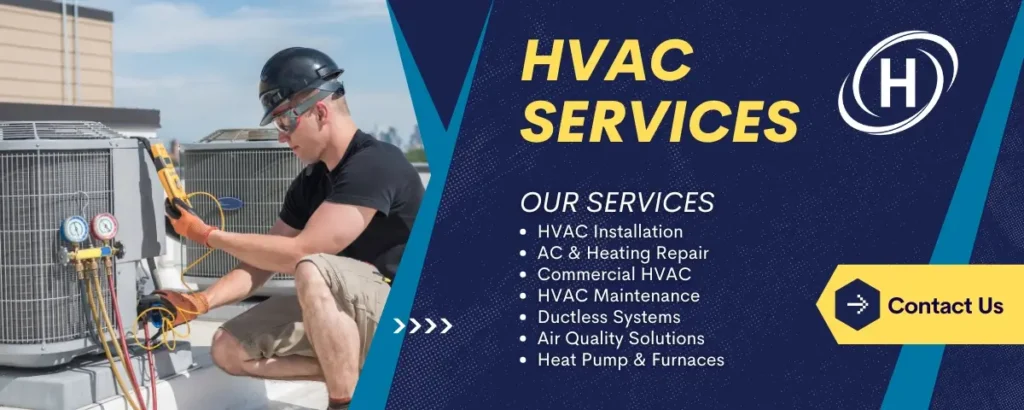
Getting Fair, Honest HVAC Pricing
After more than a decade serving New Orleans, we’ve built our reputation on transparent, fair pricing. We believe you should know what things cost before we show up at your door, not after we’ve taken your system apart.
When you call us for AC repair, we’ll give you typical price ranges over the phone based on your description of the problem. No surprises, no “bait and switch” tactics. If we discover additional issues during diagnosis, we’ll explain them clearly and give you options, not ultimatums.
For installations, we provide detailed quotes that spell out exactly what’s included. Equipment model numbers, warranty terms, permit costs, removal of old equipment – it’s all there in black and white. We want you to be able to compare our quotes fairly with others.
Bottom line: HVAC services aren’t cheap, but they shouldn’t be a mystery either. You deserve to know what you’re paying for and why. That’s how we’d want to be treated, and that’s how we treat our customers.
Ready to get honest, upfront pricing for your HVAC needs? Contact Hagerman Services at (504) 314-1486 or schedule online. We’ll give you straight answers about costs before any work begins.
Frequently Asked Questions
Q: How much does AC repair cost in New Orleans?
A: AC repairs in New Orleans typically range from $150-500 for common issues like capacitor replacements or refrigerant recharges. Major repairs like compressor replacement can cost $1,500-2,500. Emergency service may add 25-50% to standard rates.
Q: What’s the average cost to install a new HVAC system in New Orleans?
A: New HVAC installation in New Orleans ranges from $5,000-8,000 for standard systems, $7,000-10,000 for high-efficiency units, and $3,000-5,000 per zone for ductless systems. Historic homes may cost 20-30% more due to unique challenges.
Q: How much does HVAC maintenance cost in New Orleans?
A: Annual HVAC maintenance in New Orleans costs $150-300 for single visits or $200-400 for yearly service agreements. Service contracts typically include two visits, priority service, and repair discounts, offering better value for most homeowners.
Q: Why are HVAC costs higher in New Orleans than other cities?
A: New Orleans HVAC costs are 10-15% higher due to extreme humidity requiring specialized equipment, longer cooling seasons (9+ months), hurricane-resistant installations, and skilled labor shortages. Systems work harder here, requiring more robust components.
Q: Will the 2025 refrigerant changes increase my AC costs?
A: Yes, R-410A refrigerant costs have increased 300% since 2020 due to the EPA phasedown. Recharges that cost $200-300 in 2020 now cost $400-600. New R-32 systems are more efficient but have higher upfront costs.

